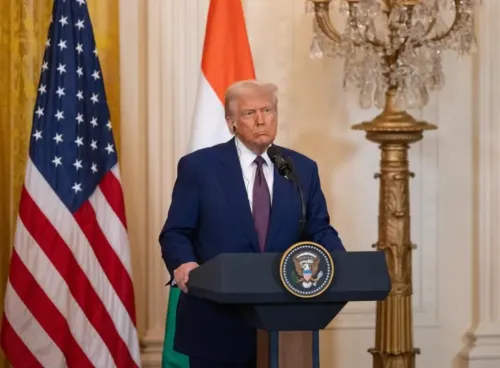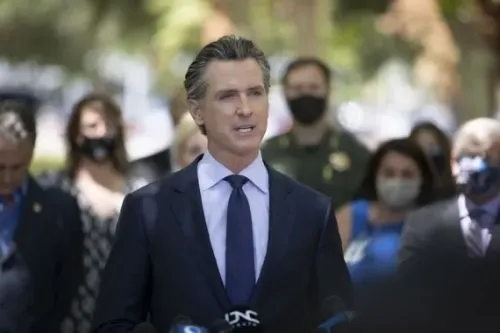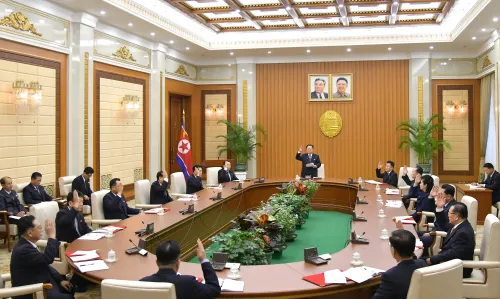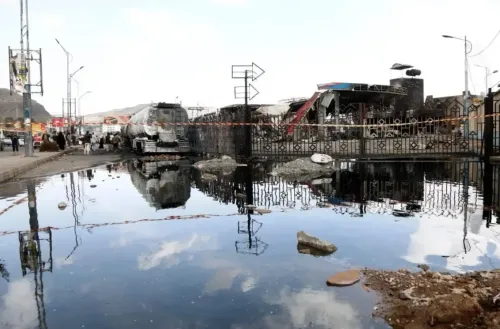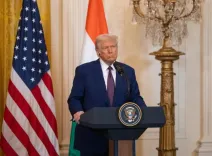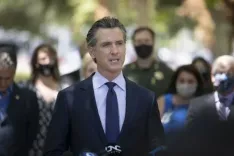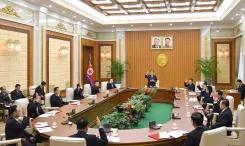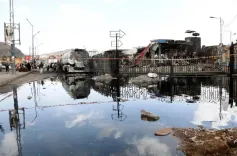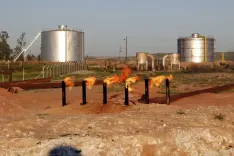What Red Lines Did Bangladesh Army Chief Set for the Yunus Regime?
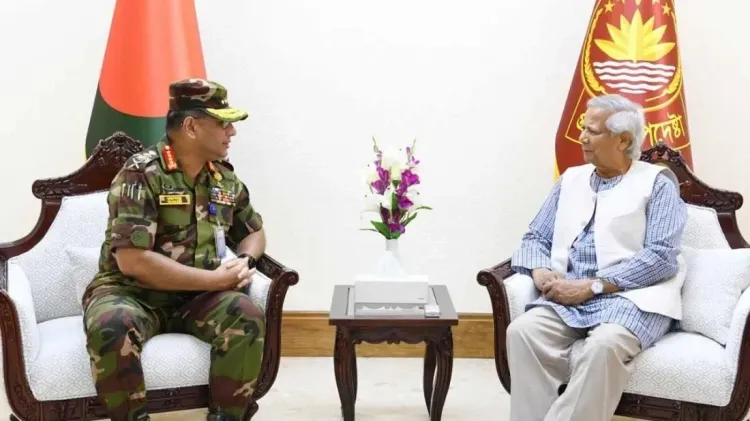
Synopsis
Key Takeaways
- No foreign humanitarian corridors until elections
- Army's commitment to national sovereignty
- General elections mandated by January 1, 2026
- Concerns over interim government decisions
- Emphasis on the 1972 Constitution
Dhaka, May 21 (NationPress) The Chief of Army Staff (COAS) of Bangladesh, General Waker-Uz-Zaman, addressed all military officers at the Army Headquarters (AHQ) in Dhaka on Wednesday. During his remarks, he emphasized that there will be no Humanitarian Corridor or allocation of ports to foreigners until an elected government assumes power in Bangladesh.
Following his speech, an engaging interactive session took place, which included online contributions.
General Zaman reiterated that the Bangladesh Army will resist any actions that threaten the sovereignty and geographical integrity of the nation. His comments received enthusiastic applause from the officers present.
He expressed grave concerns regarding the interim government led by Muhammad Yunus, indicating that it was making decisions while excluding the Armed Forces.
Discussing the necessity of elections, he stated that a democratically elected government should be in place by January 1, 2026, following free and fair elections, after which the army will withdraw to their barracks.
While acknowledging some commendable qualities of Yunus, he criticized the presence of certain foreign individuals in the interim cabinet who seem to act irresponsibly, suggesting they would return to their home countries when issues arise.
General Zaman highlighted the significance of the 1972 Constitution of Bangladesh and asserted that substantial alterations are unwarranted. He expressed confusion regarding the proposed July Declaration and criticized the notion of ousting the President as meaningless.
The COAS stressed that acts of mob violence and lawlessness will not be tolerated, asserting that any irresponsible behavior from protesting Army personnel would be publicly addressed.
It was noted that no senior officers raised questions during the meeting, and General Zaman was open to inquiries from officers ranging from Captain to Lieutenant Colonel.
On the topic of reforms prior to the General Elections, he encouraged officers to maintain patience, assuring them he would take their views into account.
During discussions, one officer reiterated that the legacy of the Liberation War and the nation's reputation are non-negotiable and must remain uncompromised.
There were no inquiries regarding the ban on the Awami League party.
Insiders indicated that General Zaman, who received significant applause from the officers, displayed determination and clarity in his statements.
The officer corps expressed unity in their support for the COAS and readiness to follow his directives.

